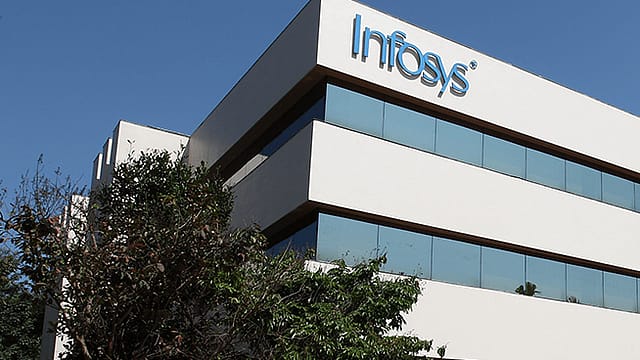Infosys: Battling a midlife crisis
ADVERTISEMENT

August 18 seems to be the date of choice for C-suite executives at Infosys to tender in their resignations. While company’s former managing director and CEO Vishal Sikka resigned on August 18 last year, this year the company’s chief financial officer, M.D. Ranganath, put in his papers. While their exits might have an uncanny coincidence, the fact is that Bengaluru-based Infosys is finding it tough to stem the tide of CXO level exits—nine over the past 12 months.
Prior to Ranganath’s resignation last week, Infosys lost two senior executives in June this year. They were Sangita Singh, who was executive vice president and head of healthcare and life sciences business, and Nitesh Banga, who was senior vice president, products and platforms. In January, former president Rajesh Krishnamurthy, who had spent over 25 years at Infosys, left the company.
Human resources (HR) consultants believe the exits by themselves may not be that significant, but clubbed together over a period suddenly amplify perception in the public mind. Priya Chetty-Rajagopal, founder and managing partner of Multiversal Advisory, a CXO search and advisory firm, says that the CFO exiting a listed company makes people cautious about it. “Plus several have happened after CEO Vishal Sikka’s departure—and top-level CXO exits do happen proximately.”
Since Sikka’s resignation on August 18, 2017, the software-services company has seen about eight more key senior management departures.
However, the exit of CFO Ranganath, who has been with the IT major for 18 years, is a sudden blow to the company. Over the past few years, Infosys is working on reviving its growth rate, which has been below industry projections and it was only in January this year that Salil Parekh took over as CEO and managing director. Analysts say that Ranganath played a key role in the last eight months to back Parekh in his strategy and vision to drive the company out of challenges. “Ranga [Ranganath] and I have worked closely over the past few quarters in shaping the strategic direction of the company,” Parekh said in a statement.
Industry experts say for Parekh, who is just eight months old in the company, the CFO’s departure—the third senior-level one under his leadership—is a major setback.
Infosys founder N R Narayana Murthy echoed similar feelings. “His [Ranganath’s] departure is an irreplaceable loss for Infosys at this critical juncture,” he said in a statement. In a rare display of sentiment for a top-level exit at Infosys, Murthy said, “He [Ranganath] has been instrumental in raising investor confidence in the company during the last five years by managing costs and margins. He is everything the idea of Infosys has always stood for.”
Ranganath had been CFO for the past three years. While media reports suggest “no clarity” on the reason for his exit, a statement from Ranganath noted, “I now plan to pursue professional opportunities in new areas,” adding that he would “pursue opportunities outside the company”. He would continue as CFO till November 16, while Infosys has begun the hunt for his replacement.
There was a time when Infosys, with its efficient and methodical outsourcing model, seemed unbeatable. Its annual revenue jumped from $1 billion in 2004 to $5 billion in just six years. For many years, the Bengaluru-headquartered company outperformed the IT industry’s growth rate. But, Infosys lost its bellwether status in the past six-seven years, and is now lagging behind larger rival and market leader Tata Consultancy Services (TCS).
For the June quarter of the current fiscal year, Infosys posted a net profit of Rs 3,612 crore on revenue of Rs 19,128 crore, compared to Mumbai-headquartered TCS, which recorded net profit of Rs 7,340 crore on revenue of Rs 34,261 crore during the same period.
Despite its underperformance in recent times, analysts say to regain its past glory, Infosys has to innovate and evolve as a technology services provider. In an export-heavy and highly commoditised Indian IT-services industry where companies clone each other’s offerings, Infosys has to create a differentiating model that can meet the needs of its new age clients globally.
Priya sums up the situation at Infosys quite succinctly. “We still think of Infosys as a young, fairytale startup story—without realising that it was founded way back in 1981, about 37 years ago. Like any person, perhaps Infosys is just going through the stretch and growing pains of a midlife crisis and will emerge even stronger.”